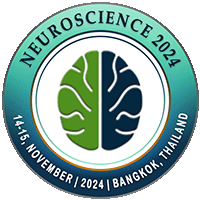
Ralitza H. Gavrilova
Minnesota, Mayo Clinic , USATitle : Inflammatory leukoencephalopathy mimicking hereditary disease
Abstract
Objectives: To distinguish genetic leukodystrophies from similar-appearing autoimmune and inflammatory leukoencephalopathies.
Methods: This was a retrospective case series focused on immunologic, genetic, imaging, and histologic investigations of biopsy-proven inflammatory leukoencephalopathy.
Results: Five patients had magnetic resonance imaging of the brain that demonstrated symmetric white-matter abnormalities like those of genetic leukodystrophies. However, in contrast to genetic disorders, all patients had subacute onset of symptoms within mean of 16 weeks and severe neurologic disability within 3 years in multiple domains: cognitive (80%), psychiatric (60%), pyramidal (100%), autonomic (100%), and cerebellar (100%). Cerebrospinal fluid, histopathology, or both were consistent with chronic inflammation. Only 1 patient had an antibody biomarker positive for glial fibrillary acidic protein.
Conclusions: Inflammatory and autoimmune causes should be considered in the differential diagnosis of adult-onset leukoencephalopathy, particularly cases of subacute onset. Paraclinical clues include cerebrospinal fluid abnormalities or gadolinium enhancement.
Biography
Ralitza H. Gavrilova, M.D., is an expert in clinical genomics and neurology whose research areas of interest are in the fields of mitochondrial medicine and neurogenetics. Dr. Gavrilova studies mitochondrial myopathy, multisystemic mitochondrial diseases, Friedreich's ataxia and neurodegenerative conditions that involve mitochondrial dysfunction, such as dementia. Another area of Dr. Gavrilova's clinical focus is hereditary leukodystrophies. Dr. Gavrilova's research goal is to improve understanding of mitochondrial dysfunction in disease

